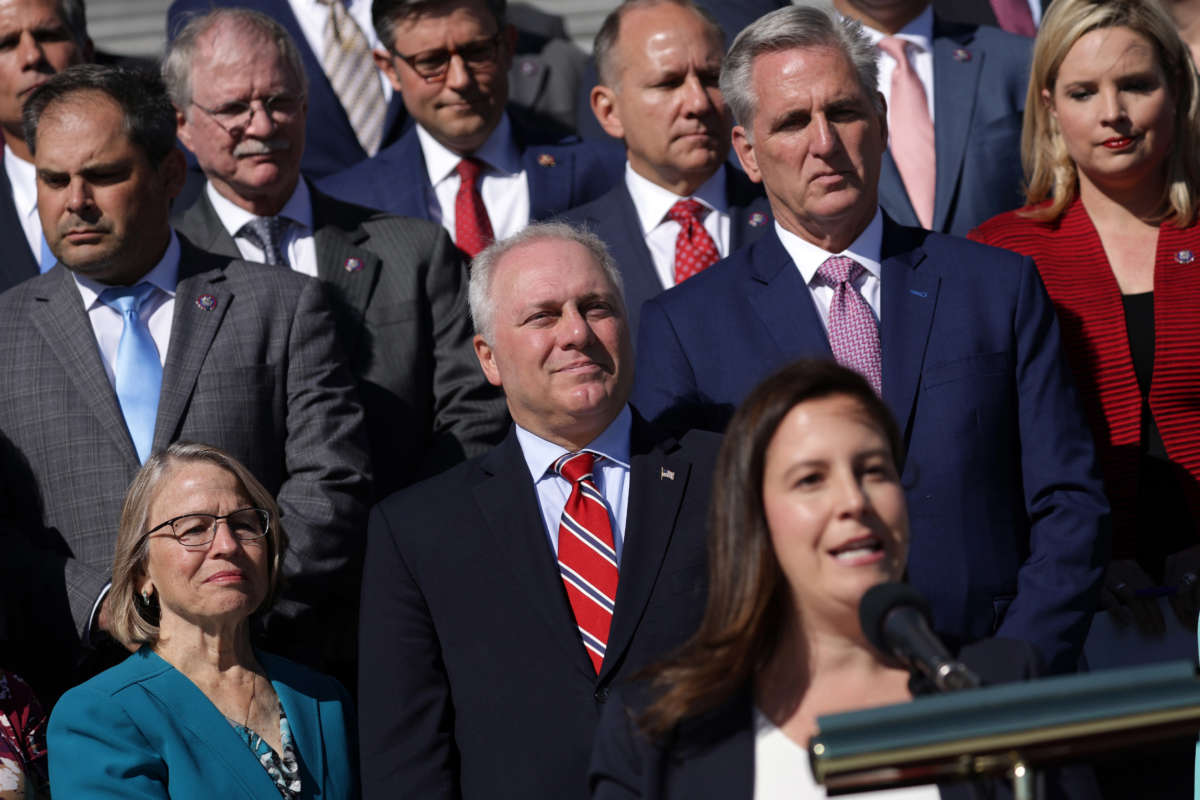Support justice-driven, accurate and transparent news — make a quick donation to Truthout today!
On Thursday, the House passed a bill aimed at expanding access to mental health services in schools that garnered only one Republican vote, despite the party’s ceaseless scapegoating of mental illness for issues in the U.S.
The Mental Health Matters Act passed 220 to 205 on a largely party line vote, with all 205 “no” votes coming from Republicans. Rep. Brian Fitzpatrick (Pennsylvania) cast the sole Republican “yes” vote.
The bill, introduced by Rep. Mark DeSaulnier (D-California) and supported by the White House, would provide grants for schools to hire more mental health experts and grow their mental health services, especially schools in areas with high need. It would also provide mental health protections to adults with private health insurance and children and staff in Head Start programs, which are aimed at serving low-income children from birth to age 5.
“Educators have been forced to play an outsized role in supporting and responding to students’ mental health needs, leading to increased depression and trauma among educators, their students, and the families and the community,” DeSaulnier said on the need for his bill, per The Hill. “However, our schools do not have the specialized staff necessary to respond to the increased prevalence and complexity of students’ mental health needs.”
Rep. Virginia Foxx (R-North Carolina) took issue with a portion of the bill that punishes employers when employees are denied mental health and substance use benefits and said that the “country would be better off without” the bill.
Experts have said that children’s mental health is in crisis. The COVID-19 pandemic has taken a toll on children’s mental health, whether through trauma, loss, or otherwise, leading to a corresponding rise in mental health crises among children, research finds. Pediatric mental health professionals say that legislation aimed at permanently increasing resources for children’s mental health is sorely needed.
Democrats condemned Republicans for voting against the bill. “This afternoon we voted to create more mental health services in schools and 99.5 percent of republicans voted no and told kids to go to hell,” Rep. Bill Pascrell Jr (D-New Jersey) wrote on Twitter.
Others pointed out that Republicans have spent months, if not years, scapegoating mental health issues as a catch-all for problems like mass shootings — which, in reality, are often spurred by far right radicalization and white supremacist ideology. Indeed, Republicans often dig up supposed concerns about mental health in order to distract from other issues.
After the elementary school massacre in Uvalde, Texas, Republicans and the far right scrambled to spread disinformation online about the shooter, pinning the problem on groups they wished to demonize — including trans people, those with mental illnesses and the Democratic Party.
“Well, it’s just tragic what happened down there. We learn something new every day about how can we improve,” House Minority Leader Kevin McCarthy (R-California) said on Fox News after the shooting. He said that there should be a funding influx for “focusing on mental health” in response to the shooting. McCarthy voted against the bill on Thursday.
In reality, Republicans who speak out in favor of mental health funding in response to horrifying mass shootings are likely readying for coming attempts to curtail gun ownership, curb the power of the gun lobby, and, in the case of Uvalde, scrutinize the police for their failure to prevent or act on the shooting.
In other words, political commentators have noted, mental health issues act as a shiny object for Republicans to wave around, a political convenience that allows the party to continue expanding and perpetuating the roots of violence and antipathy.
For instance, Republicans have repeatedly suggested that school shutdowns and remote learning were the real plague on children’s mental health during the pandemic. But the deaths of teachers and caregivers that likely would have resulted from hasty school reopenings would almost certainly have had an equal if not larger toll on children’s mental health.
Press freedom is under attack
As Trump cracks down on political speech, independent media is increasingly necessary.
Truthout produces reporting you won’t see in the mainstream: journalism from the frontlines of global conflict, interviews with grassroots movement leaders, high-quality legal analysis and more.
Our work is possible thanks to reader support. Help Truthout catalyze change and social justice — make a tax-deductible monthly or one-time donation today.
